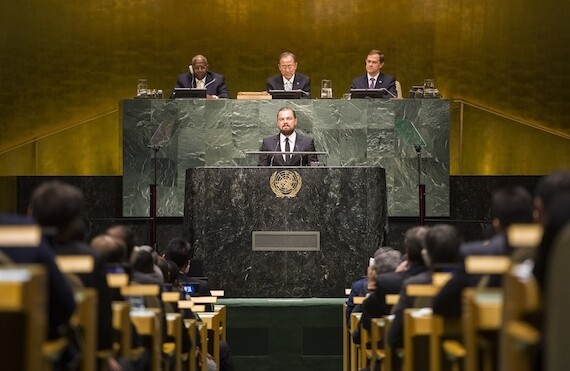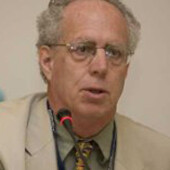Everywhere one turns in international relations, there are calls for new multi-stakeholder groups (MSGs). These leadership alliances consist of self-selected representatives of civil society, the private sector, governments, the UN system, and other stakeholders that seek to work together for a common purpose. OECD (Organisation for Economic Co-operation and Development) countries want them to implement the Sustainable Development Goals (SDGs); the Security Council wants public-private partnerships in war zones; developed countries expect MSGs will provide the $100 billion per year for climate issues; the World Economic Forum (Davos) places multi-stakeholder groups at the center of their post-nation state governance system;1 the Secretary-General sponsors UN-business partnerships to provide energy for everyone;2 and developing and developed countries call on MSGs to solve "technical" problems with the flow of capital to developing countries.
However, many people in civil society and in governmental circles have a great deal of ambivalence, if not outright hostility, for this newer global governance approach. It is one thing when MSGs advocate for a position (e.g. lobby intergovernmental bodies) or provide their knowledge and expertise to governments.3 It is another thing when the multi-stakeholder consultation format morphs into a multi-stakeholder governance system which silently or not so silently takes over "solving" a global problem. The proliferation of multi-stakeholder governance arrangements has gained credence without a careful analysis of the democratic and political consequences of these institutions. For the public, it is then not surprising that news about MSGs taking a lead on a global issue generates anxiety.
A good deal of the uncertainty and discomfort comes from the variety of forms of multi-stakeholder groups and their potential to displace governments and the international system as key leaders in global governance. It is also the case that there are strong divergences of views between governments and citizens about whether multi-stakeholder groups are near angels who can deliver everything, or whether they are inherently dangerous because profitability or business efficiency should not be a necessary condition for "solving" a global crisis. In any case there are simply no clear rules for MSGs on accountability, responsibility, dispute settlement, and representation—key elements that are otherwise accepted as core principles for a legitimate global governance process.
As multi-stakeholder governance arrangements are likely to proliferate, it is worthwhile to develop a convention and a set of rules to govern the behavior of legitimate multi-stakeholder governance groups, on one hand, and to disempower those MSGs, on the other hand, that are really disguised oligopolies or self-interested groups intent on taking of governance of pressing public concerns. This convention can draw on the experiences of both currently functioning MSGs with good public records (e.g. the work of the Forest Stewardship Council in setting standards for the trade in sustainably harvested wood products) as well as some MSGs with decades of practice (e.g. the International Labour Organization, with its tripartite governance system involving joint decision-making by representatives of employers, workers, and governments). For governments, as the traditional long-standing actors in global governance, there are formal conventions and rules: the Vienna convention on diplomatic rules,4 another Vienna convention on how to manage conflicts between different agreements,5 and a UN rule book that lays out ways to protect minority views and to ensure a sense of democratic process at the inter-governmental level.
As a step to developing an appropriate rule book on MSGs, it would help to clarify the issues that should be included in such an understanding. An MSG consisting of one NGO, one government, one academic, one media person, and five corporate executives might be able to be an effective, nimble, and low-cost way to address a global problem, but a separate question is whether that MSG is governing with legitimacy and democracy. In current debates about multi-stakeholder global governance groups, one hears concerns regarding the following eight issues: (1) what are the appropriate categories of participants in a given multi-stakeholder group; (2) how should MSGs address the inherent power balance between these categories; (3) what are correct standards—or should there be standards—to select appropriate participants for each category; (4) who selects the organizations to represent each participant category; (5) what are the de facto terms of reference for the group; (6) where does the cash involved come from and go to; (7) what is the internal decision-making process for the MSG; and (8) what are its external obligations.
In none of these areas is there a rule book or even clarity about responsibilities, obligations, or liability under international law. In most cases, this new terrain of global governance is having its rules made up on the fly. Many of these newer MSGs are going about their activities without even any interest in their own rules of procedure.
At the moment, however, various intergovernmental bodies are finalizing multi-year agreements where MSGs expected to take a lead in "solving" a particular global problem and a good number of other MSGs are evolving autonomously as they seek to assert global leadership on an unresolved global issue. So there is no time to lose. Before a recognized rule book or convention is put in place, governments and other participants in these MSGs should agree on a temporary framework. As a provisional measure, one option could be based on three broad types of multi-stakeholder governance arrangements. One could designate these three tiers as (1) Officially Recognized Multi-stakeholder Groups (ORMs); (2) Supportive Multi-stakeholder Groups (SMs); and (3) Independent Multi-stakeholder groups (IMs).
Officially Recognized Multi-stakeholder Groups (ORMs)
Officially Recognized Multi-stakeholder Groups could be provided designated seats at relevant UN system meetings, accorded regular speaking rights, and welcomed to declare that they are recognized by the UN system as active participants in addressing global issues. These ORMs could be those which meet four clear criteria: (1) they share common policy positions with the UN system (e.g. endorse the SDG package, support the application of Universal Declaration on Human Rights to their sector, or align themselves with relevant intergovernmental conventions relating to the function of the specific MSG); (2) they consist of organizations whose behavior meets a minimum set of standards for UN-affiliated organizations (e.g. not acting in opposition to Security Council resolutions and not being under indictment for corruption in any member state); (3) they have working methods that are reviewed by the relevant intergovernmental bodies to assure that there are basic procedural safeguards for membership, terms of reference, and working internal rules; and (4) they issue to the public regular, standardized reports, including on financial matters.6 A partner ORM relationship could help bring legitimacy to an MSG and create an appropriate mechanism for an intergovernmental body to access to the combined capital, capacities and knowledge of the MSG, within a democratically accepted intergovernmental process.
Supportive Multi-stakeholder Groups (SMs)
Some other MSGs may want to engage directly with the intergovernmental process but would prefer a more flexible arrangement. These Supportive Multi-stakeholder Groups (SMs) could function with a lower threshold of public recognition and a different structural relationship to an intergovernmental process. Such MSGs could register their willingness to be SMs by agreeing to report on their activities on an agreed timetable and to provide financial information according to agreed standards. These MSGs could submit special written interventions to delegates and officially transmit their reports to the relevant intergovernmental body. In turn they could publicly cite their supportive association with the UN on a particular matter. They would be expected to (a) declare explicitly that they share a specific common policy position of the UN system (for example, the endorsement of the Sustainable Development Goals package), and (b) that their organizations and members meet minimum standard for UN-affiliated organizations, described above. This tier of MSG encourages MSGs to work in support of the UN system and to share in its recognized legitimacy, provided that they are willing to meat basic minimal international standards of reporting and behavior.
Independent Multi-stakeholder groups (IMs)
In regards to Independent Multi-stakeholder groups (IMs), if a group of corporate executives, civil society leaders, academics, or/and government representatives wants to work together on an issue, independent from any political process, there is little that non-participants can do to effect the terms of reference of the group or its self-selection of participants. These IMs, whether they are the World Economic Forum's Global Agenda Councils or a Foundation-led group on health care, have every right to associate, provided they behave within a minimal set of social standards. These minimal standards include that (a) the MSG was not created to undertake oligopolistic activities, (b) they are not designed as a political takeover of a public policy area, (c) they avoid corruption, and (d) they periodically report the outcome of their endeavors to the wider public. Some MSGs, particularly smaller organizations or MSGs working in a highly specialized area, may seek independence and autonomy in order to get off the ground. IMs' claims to legitimacy can come from their own practice or from the power of their participants. UN system bodies and intergovernmental organizations should keep a wide berth from these IMs, as these MSGs have elected to side-step the existing intergovernmental system and/or core governance principles. Independent Multi-stakeholder Groups can do their own thing. However, they and their participating organizations should not be invited to address or participate in intergovernmental meetings and cannot claim involvement with the UN system. Today, legitimacy in global governance cannot just be bestowed by governments or the UN system. The list of registered ORMs and SMGs and their reports should be made widely accessible so that individuals and civil society organizations can both recognize those MSGs working with their governments and share with the appropriate officials any concerns they have about the effective implementation of global governance standards. No doubt there will be disputes about the integrity of an MSG or the individual organizations in an MSG. Surfacing these concerns will benefit the legitimacy of all global governance actors. Each intergovernmental organization, in establishing its variant of these rules, can designate an ombudsman or other dispute settlement mechanism to handle these issues.
The purpose of the three-tiered approach is to separate the intergovernmental system from organizations that can potentially damage the credibility of the UN and governments (the IMs); to create a flexible experimental system for supportive MSGs that agree to core standards of behavior and reporting (the SMGs); and to institutionalize those MSGs which seek close engagement with intergovernmental organizations IGOs in order to bring the diverse benefits of a MSG to a global challenge (the ORMs). With common project reporting formats and financial disclosure statements from SMGs and ORMs, the UN can provide governments and the public with meaningful aggregated financial data as well as useful evaluations of the state of the global efforts to address a given problem. Whatever variants of the interim governance system that are put in place for MSGs, the public consideration of the standards will start a long postponed conversation about democracy and MSGs and contribute to a body of practice that can provide a foundation for a future convention.
FOOTNOTES
1 Readers' Guide: Global Redesign Initiative, UMass-Boston, Center for Governance and Sustainability, 2013
3 Technically the formal way non-governmental bodies related to ECOSOC as NGOs with consultative status
4 Vienna Convention on Diplomatic Relations, 1961
5 Vienna Convention on the law of treaties, 1969
6 See the OECD's work in this area




